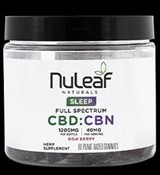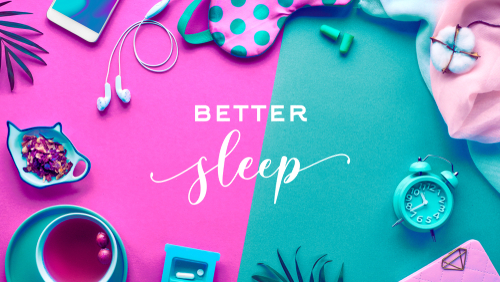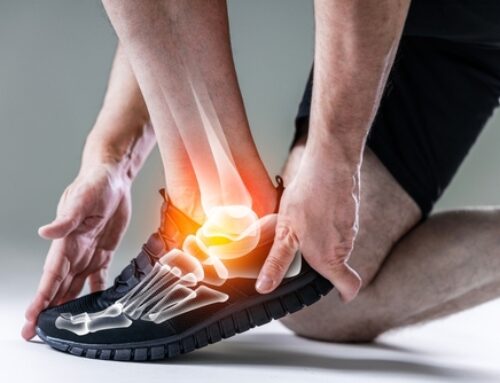During a hot, humid summer like the one that we are having, deep quality sleep can be very elusive. Sleep is a cornerstone of health, influencing cognitive function, emotional well-being, and physical vitality. Even this month there was a new study linking poor sleep and Alzheimer’s disease. Many factors can disrupt our sleep and create a deleterious effect on our health. Our modern lifestyles often disrupt sleep quality, leading to issues like insomnia or poor rest. It is our mission at [Core] to help aid all aspects of your health including assisting you to sleep better tonight.
The Foundations for Better Sleep
Creating an environment and routine conducive to sleep is foundational. Start by establishing a consistent sleep schedule, going to bed and waking up at the same time daily, even on weekends. This regulates the body’s circadian rhythm, promoting natural sleep onset. Limit exposure to blue light from screens at least one hour before bed, as it suppresses melatonin production. If screen use is unavoidable, use blue light-blocking glasses or device filters.
Optimize your bedroom environment: keep it cool (60-67°F), dark, and quiet. Blackout curtains, white noise machines, or earplugs can enhance this setup. A pre-sleep routine, such as reading a book or practicing mindfulness, signals the body to wind down. Avoid stimulating activities like intense discussions or work-related tasks close to bedtime. Lastly, reserve the bed for sleep and intimacy only to strengthen the mental association between bed and rest.
Nutrition for Sleep Enhancement
 Diet plays a critical role in sleep quality. Consuming foods rich in tryptophan, magnesium, and melatonin can promote restful sleep. Tryptophan, found in turkey, eggs, and nuts, is a precursor to serotonin, which converts to melatonin. Magnesium-rich foods like leafy greens, almonds, and peanut butter relax muscles and calm the nervous system. Tart cherries, kiwi, and salmon naturally contain melatonin, aiding sleep onset.
Diet plays a critical role in sleep quality. Consuming foods rich in tryptophan, magnesium, and melatonin can promote restful sleep. Tryptophan, found in turkey, eggs, and nuts, is a precursor to serotonin, which converts to melatonin. Magnesium-rich foods like leafy greens, almonds, and peanut butter relax muscles and calm the nervous system. Tart cherries, kiwi, and salmon naturally contain melatonin, aiding sleep onset.
Avoid heavy meals, caffeine, and alcohol close to bedtime. Large meals can cause indigestion, while caffeine (found in coffee, tea, and chocolate) can disrupt sleep even hours after consumption. Alcohol, though initially sedating, fragments sleep cycles, reducing restorative deep sleep. Instead, opt for a light evening snack, such as seeds and nuts (pistachios, walnuts, and peanuts) that are packed with sleep-supporting nutrients. Stay hydrated but reduce fluid intake in the evening to minimize nighttime awakenings.
Exercise and Sleep
Regular physical activity is a powerful sleep enhancer, but timing and type matter. Aerobic exercise, such as running, cycling, or swimming, improves sleep duration and quality by reducing stress and regulating circadian rhythms. Aim for at least 150 minutes of moderate-intensity exercise weekly, ideally completed earlier in the day. Exercising too close to bedtime (within 2-3 hours) can elevate heart rate and body temperature, delaying sleep onset.
Mind-body exercises like yoga or tai chi are particularly effective, combining physical movement with relaxation. A gentle evening yoga routine with poses like child’s pose or legs-up-the-wall can calm the nervous system. Consistency is key—regular exercise yields cumulative benefits for sleep over time.
Acupuncture for Sleep Improvement
 Research suggests acupuncture may improve sleep by reducing anxiety, stimulating melatonin production, and regulating the nervous system. A 2019 meta-analysis found that acupuncture significantly improved sleep quality in individuals with insomnia compared to control groups.
Research suggests acupuncture may improve sleep by reducing anxiety, stimulating melatonin production, and regulating the nervous system. A 2019 meta-analysis found that acupuncture significantly improved sleep quality in individuals with insomnia compared to control groups.
We offer acupuncture here in our office and can customize treatments to your needs, typically targeting points related to stress and sleep, such as the Shenmen point on the ear and the Du points in the upper thoracic spine. Sessions may be needed weekly for several weeks to see sustained benefits.
Chiropractic Care and Sleep
Chiropractic adjustments focus on adjusting the spine to improve nervous system function, which can enhance sleep. Problems in the spine may contribute to discomfort or pain that disrupts rest. By correcting these, chiropractic care can reduce tension and promote relaxation. A 2018 study in the Journal of Chiropractic Medicine reported that patients receiving spinal adjustments experienced improved sleep quality and reduced insomnia symptoms.
Regular chiropractic visits, combined with ergonomic sleep setups (e.g., a supportive mattress and neutral-spine pillow), can amplify benefits. We will be happy to show you the best positions to sleep well and minimize joint pain.
CBD for Sleep Support
 Cannabidiol (CBD), a non-psychoactive compound from cannabis, has gained attention for its potential to improve sleep. CBD interacts with the endocannabinoid system, which regulates stress, mood, and sleep. A 2019 study in The Permanente Journal found that 66.7% of participants using CBD reported better sleep after one month. CBD may reduce anxiety and pain, both common barriers to restful sleep.
Cannabidiol (CBD), a non-psychoactive compound from cannabis, has gained attention for its potential to improve sleep. CBD interacts with the endocannabinoid system, which regulates stress, mood, and sleep. A 2019 study in The Permanente Journal found that 66.7% of participants using CBD reported better sleep after one month. CBD may reduce anxiety and pain, both common barriers to restful sleep.
Start with a low dose (10-25 mg) of high-quality, third-party-tested CBD oil or gummy, taken 30-60 minutes before bed. We prefer to use a CBD/CBN gummy as the additional 5mg of CBN (another cannabinoid from the hemp plant) greatly improves the effects.
GABA for Sleep Regulation
 Gamma-aminobutyric acid (GABA) is an inhibitory neurotransmitter that calms brain activity, promoting relaxation and sleep. Low GABA levels are linked to insomnia and anxiety. Supplemental GABA may help by enhancing calmness. A 2018 study in Nutrients found that GABA supplementation improved sleep latency and quality in individuals with sleep difficulties. Typical doses range from 500-1000 mg, taken 30 minutes before bed.
Gamma-aminobutyric acid (GABA) is an inhibitory neurotransmitter that calms brain activity, promoting relaxation and sleep. Low GABA levels are linked to insomnia and anxiety. Supplemental GABA may help by enhancing calmness. A 2018 study in Nutrients found that GABA supplementation improved sleep latency and quality in individuals with sleep difficulties. Typical doses range from 500-1000 mg, taken 30 minutes before bed.
Integrating Strategies for Optimal Sleep
Combining these approaches creates a holistic sleep improvement plan. For example, a routine might include a morning jog, a magnesium-rich dinner, a screen-free evening with yoga, and a CBD or GABA supplement before bed. Acupuncture or chiropractic care can be scheduled weekly to address underlying issues. Track progress using a sleep diary or wearable device to identify what works best.
Consistency and personalization are crucial. Not all strategies suit everyone, so experiment to find the right balance. Avoid over-relying on supplements like CBD or GABA without addressing lifestyle factors. We are happy to help customize a sleep routine for you so that not only do you sleep better tonight, but you become healthier than you have ever been.








